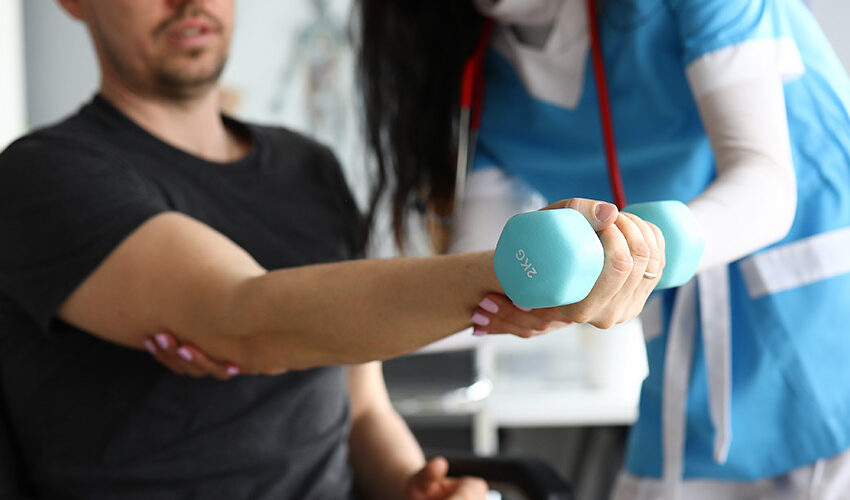
- February 27, 2024
- Physiotherapy
As wellness retreats gain popularity among those seeking to improve their overall well-being, integrating specialized services like physiotherapy has become a game-changer for enhancing the retreat experience. A nearby physiotherapist can provide valuable insights and support to optimize your physical health during your stay. In this blog post, we will delve into the technical aspects of physiotherapy and explore its benefits when incorporated into a wellness retreat program.
Understanding Physiotherapy at a Wellness Retreat
What is Physiotherapy?
Physiotherapy, also known as physical therapy, is a branch of rehabilitative medicine that focuses on enhancing physical function and mobility. Trained and licensed physiotherapists use a wide range of techniques, exercises, and modalities to assess, diagnose, and treat various musculoskeletal conditions, injuries, and disabilities. The goal of physiotherapy is to facilitate recovery, improve strength, flexibility, and overall physical well-being.
The Role of Physiotherapy in a Wellness Retreat
A wellness retreat offers a nurturing environment for individuals seeking relaxation, rejuvenation, and personal growth. Integrating physiotherapy into a retreat program aligns perfectly with these goals. The presence of a nearby physiotherapist enhances the overall experience by addressing participants’ physical needs and promoting holistic well-being.

The Technical Aspects of Physiotherapy
- Assessment and Diagnosis: During a wellness retreat, the physiotherapist begins by conducting a comprehensive assessment of each participant’s physical condition. This evaluation includes an analysis of posture, joint mobility, muscle strength, and any existing musculoskeletal issues. The gathered data allows the therapist to develop personalized treatment plans tailored to the individual’s specific needs.
- Therapeutic Exercises: Physiotherapy employs a variety of therapeutic exercises to improve muscle strength, flexibility, and endurance. These exercises target specific areas of concern, promoting proper alignment and reducing the risk of injury during other wellness activities offered at the retreat. Additionally, these exercises can be continued by participants after the retreat, supporting long-term well-being.
- Manual Therapy: Manual therapy techniques involve hands-on manipulation of muscles, joints, and soft tissues to alleviate pain, improve circulation, and restore proper movement patterns. For participants engaging in yoga, meditation, or other activities that require physical flexibility and balance, manual therapy can be particularly beneficial in enhancing performance and minimizing discomfort.
- Modalities and Equipment: A nearby physiotherapist at the wellness retreat may also use various modalities and equipment to complement traditional exercises and manual therapy. These may include heat or cold therapy, electrical stimulation, ultrasound, and more. Such modalities can accelerate healing, reduce inflammation, and enhance the overall effectiveness of the treatment.
- Education and Prevention: Educating participants about proper body mechanics, injury prevention techniques, and self-care practices is a crucial aspect of physiotherapy at a wellness retreat. This knowledge empowers individuals to take charge of their physical health even after the retreat ends, promoting a sustainable wellness journey.

The Benefits of Physiotherapy at a Wellness Retreat
- Enhanced Physical Performance: By addressing physical limitations and imbalances, physiotherapy enables participants to perform better in other wellness activities offered at the retreat. Whether it’s yoga, meditation, hiking, or other recreational pursuits, improved physical function enhances the overall retreat experience.
- Injury Prevention: Physiotherapy not only helps in recovering from existing injuries but also aids in preventing future ones. Through targeted exercises and education, participants can learn how to move safely, reduce the risk of injuries, and continue their wellness practices long after the retreat ends.
- Accelerated Healing: Incorporating modalities like heat therapy, electrical stimulation, or ultrasound in physiotherapy sessions can accelerate the healing process for any existing injuries or conditions. This ensures that participants can fully enjoy the retreat activities without being hindered by physical discomfort.
- Personalized Care: Each participant receives individualized attention and treatment from the nearby physiotherapist, focusing on their unique needs and concerns. This personalized approach maximizes the benefits of physiotherapy, leading to better outcomes and a more fulfilling retreat experience.
- Holistic Well-Being: By addressing the physical aspect of well-being, physiotherapy complements the mental, emotional, and spiritual aspects of a wellness retreat. When all these elements are in harmony, participants can experience a truly holistic transformation and leave the retreat feeling revitalized and renewed.
Conclusion
Integrating physiotherapy into a wellness retreat program can significantly enhance the overall experience and results for participants. A nearby physiotherapist offers specialized care, personalized treatment plans, and valuable insights to optimize physical well-being. The technical aspects of physiotherapy, such as assessment, therapeutic exercises, manual therapy, modalities, and prevention education, contribute to the success of this unique offering.
So, if you are considering joining a wellness retreat soon, remember to seek one that offers the expertise of a nearby physiotherapist. Embrace the opportunity to improve your physical health, prevent injuries, and optimize your overall wellness journey.
